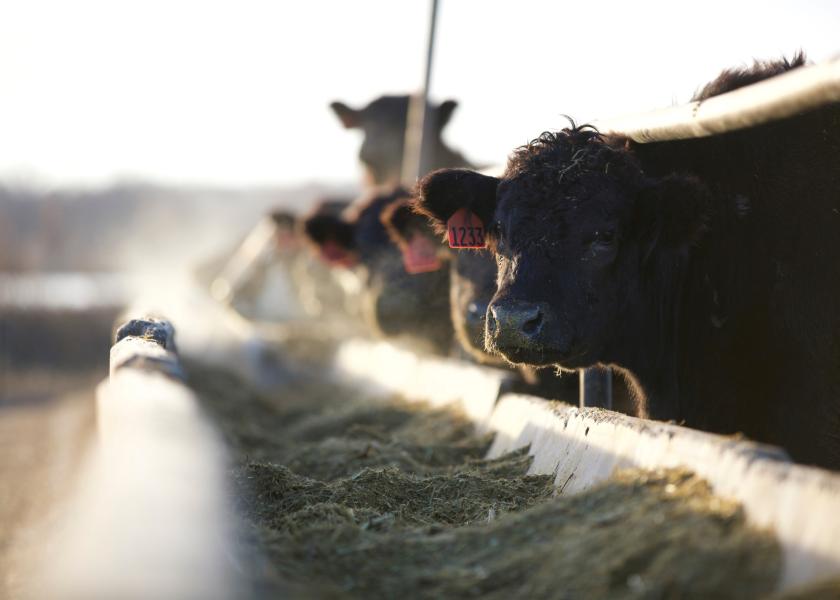10 Ways to Reduce Stress In Beef Operations

Quality colostrum and vaccination can get animals off to a great start, but even in a vaccinated animal, stress can compromise their immune system and make them susceptible to respiratory disease.
“We need to be considerate of all the different stress factors that can set an animal up for the onset of disease,” says Joe Gillespie, DVM, Boehringer Ingelheim. “How we manage livestock during their growth phase is really important. We must be diligent and proactive on all fronts in order to protect calves.”
Implementing the following management practices can help mitigate stress and prevent disease in a beef herd:
1. Screen incoming calves for bovine viral diarrhea virus (BVDV), and remove persistently infected calves from the herd.
2. Shield cattle from harsh weather conditions, and give them plenty of bunk space.
3. Avoid overcrowding, as it causes stress and promotes the spread of disease.
4. Bed cattle frequently. Bedding provides added warmth, improved comfort and a barrier between cattle and the ground below, which can contain pathogens.
5. Maintain proper ventilation to keep cattle from inhaling dust and harmful BRD-causing pathogens.
6. Ensure cattle have access to water and a properly balanced diet. This is necessary for healthy immune function and proper growth.
7. Clean water sources, feed bunks or other heavy-use areas regularly.
8. Minimize the commingling of animals from different sources. If unavoidable, use a preconditioning program.
9. Practice low-stress handling to ensure the moving process goes smoothly for both producers and the cattle. Low-stress handling techniques include presenting a calm disposition, avoiding loud noises, reducing the use of cattle prods, and removing visual distractions.
10. Implement a deworming protocol for parasite protection. Clinical or subclinical parasitism decreases the animal’s ability to fight disease, and may negatively affect response to vaccination by competing with the immune system for protein and energy.
Even with the best management practices in place, some stressful events such as shipping are unavoidable. “When producers know that animals are about to experience a stressful event, metaphylaxis is an option to explore,” notes Gillespie. Administering metaphylaxis, or a group antibiotic treatment, for at-risk animals can help reduce morbidity and mortality on beef operations.
“(Use) a metaphylaxis that works best for your specific class of cattle,” emphasizes Dr. Gillespie. “Typically, several factors should be evaluated, such as spectrum of activity, speed of action, and post-metaphylactic interval, or the length of time the antibiotic is at effective levels in the bloodstream before another dose is required. Because a number of different bacteria can be involved with respiratory disease, it’s also important to choose a broad-spectrum antibiotic that reaches the lungs quickly.
“BRD is the costliest cause of sickness and death in the beef industry,1 and implementing a holistic approach to battling the disease could help to provide the protection producers are looking for,” Gillespie says. “With the right management strategies, producers can put their cattle on track for lifelong productivity and well-being.”
References:
1 Duff GC, Galyean ML. Board-invited review: recent advances in management of highly stressed, newly received feedlot cattle. J Anim Sci 2007;85(3):823– 840. doi:10.2527/jas.2006-501







